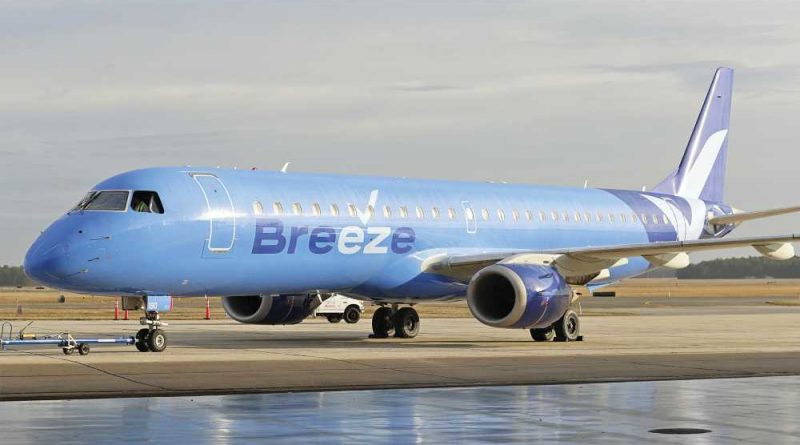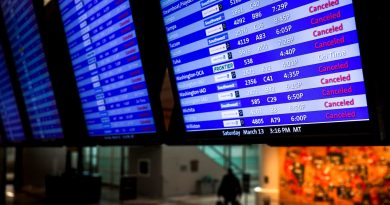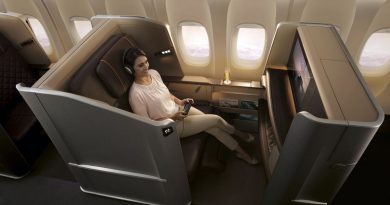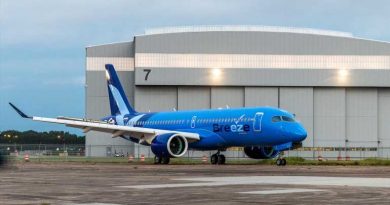Launching during pandemic could give Breeze and Avelo a boost
When Breeze Airways took to the skies on May 27, that meant that two discount U.S. airlines launched in the spring that follows a devastating year for commercial aviation.
But while Breeze and the new Avelo Airlines doubtlessly hope for successful launches, buoyed by the surging demand of the domestic U.S. leisure travel market, they face a challenging road ahead, said aviation analyst Bob Mann of R.W. Mann and Co.
“The track record of startups since deregulation, it’s like all the dead armadillos on the side of a Texas highway. It’s just roadkill,” Mann said, referencing the 1978 deregulation of the U.S. airline industry. “It’s hard, and most of them fail.”
Breeze will fly 39 routes this summer to 16 destinations with an emphasis on ferrying vacationers in the eastern half of the country to Tampa, New Orleans, Charleston, S.C., and Norfolk, Va.
Avelo will fly 11 routes between Burbank, Calif., and leisure destinations, mostly along the West Coast and in the Mountain West.
Both airlines are positioning themselves as discount carriers, which is the market segment that has performed best during the Covid-19 crisis. And though planning for the airlines was underway before the pandemic began, they’ve had the opportunity to tailor their launches to the leisure-dominant market that the pandemic has created.
For Breeze, that led to its initial Southeast-focused route network.
“That’s where the opportunity is right now,” Breeze founder David Neeleman said. “I think the Sunbelt is hot.”
Avelo might soon follow suit. The carrier announced this month that its second base will be in New Haven, Conn., a location from which it is likely to focus on Sunbelt service.
Both carriers are also deploying some of the strategies that helped ultralow-cost carrier Allegiant achieve industry-leading margins prior to the pandemic and then come through the pandemic in comparatively good stead.
Notably, they are focusing on city pairs that are largely unserved by other airlines. In Avelo’s case that includes an emphasis on secondary airports within range of large markets — such as Burbank and Phoenix Mesa — a tried-and-true tactic of Allegiant.
Breeze, meanwhile, plans to aggressively scale up and down within the stations it serves, another tactic Allegiant has successfully utilized through the years.
Neither carrier is selling tickets through the GDSs.
- Related: Budget leisure airfares will keep climbing, Hopper predicts
“For airlines like Avelo or Breeze, which primarily fly secondary markets and point-to-point routes, the pricing strategy is centered around low fares, which means they need to keep a lid on costs. And the GDS is simply not a good distribution medium if the aim is cost control,” explained Charuta Fadnis, senior vice president of research and product strategy for Phocuswright.
Former Spirit CEO Ben Baldanza, who now hosts the podcast “Airlines Confidential,” said executive teams at Breeze and Avelo could have pushed their launches further back. Instead, he said, Neeleman and Avelo CEO Andrew Levy, a former Allegiant president, decided to launch now because they see opportunity. Baldanza noted that discount carriers Sun Country and Frontier had successful IPOs this spring. And investors have continued to support Avelo and Breeze. Avelo is backed by $125 million in private equity, and Breeze is backed by more than $100 million, including securing an additional $83 million in the midst of the pandemic last fall.
“The way I see it is they both realized the low-cost sector is better positioned than any other coming out of Covid,” Baldanza said.
Mann agreed.
“If you go back and look at who recovers from prior downturns, the guys with the lowest costs recover soonest and usually had the best margins before the downturn,” he said.
Startups, Mann said, almost by definition, have low cost structures.
Despite the similarities between Avelo and Breeze, Baldanza said he thinks of their business models as being distinct from one another. He views Avelo, with Levy’s roots and its focus on secondary big-market airports like Burbank, as a new Allegiant.
He said Breeze is more akin to a new JetBlue. After all, Neeleman also founded JetBlue, and like JetBlue, Breeze will offer a premium cabin on its long-range Airbus aircraft.
Baldanza said both carriers are capitalized enough to have a chance at success, provided that the leisure travel market truly does overcome the pandemic relatively quickly. A key for them, he said, will be to continue to keep fixed costs low as the airline industry emerges from the Covid-19 crisis.
Source: Read Full Article




